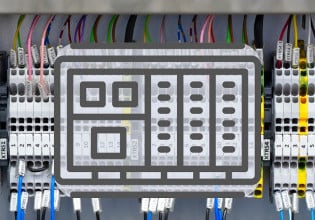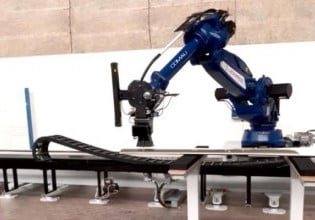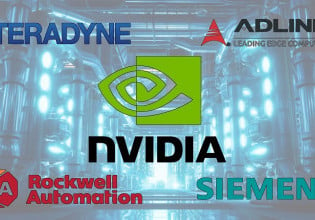J
Jocelyn Boily:
> One of the main advantages of PLC languages is that you can change the
> program while it is running.
In some ways, this is a different problem again. The config tool and MMI could easily be written in C and still allow on-line changes.
> I would hate to see Our LinuxPLC to shy away from this feature.
> Interpretative languages would allows to do this quite easily, but would
> it be possible with a compiling language?
Actually, it's not necessarily such a great difference - in either case the interpreter/compiler has to have special provision for it... Most likely it won't be there in the initial version, but it must be there eventually.
An interesting problem is how to design such a feature, in general. For a stateless language like stepladder, it's fairly obvious - but what about other languages?
(If you have a correct program running, and you replace it on-line with another correct program, it's possible that the overall effect will be
incorrect. Can that be solved?)
Jiri
--
Jiri Baum <[email protected]>
What we do Every Night! Take Over the World! Step 1 - bid for SMOFcon
_______________________________________________
LinuxPLC mailing list
[email protected]
http://linuxplc.org/mailman/listinfo/linuxplc
> One of the main advantages of PLC languages is that you can change the
> program while it is running.
In some ways, this is a different problem again. The config tool and MMI could easily be written in C and still allow on-line changes.
> I would hate to see Our LinuxPLC to shy away from this feature.
> Interpretative languages would allows to do this quite easily, but would
> it be possible with a compiling language?
Actually, it's not necessarily such a great difference - in either case the interpreter/compiler has to have special provision for it... Most likely it won't be there in the initial version, but it must be there eventually.
An interesting problem is how to design such a feature, in general. For a stateless language like stepladder, it's fairly obvious - but what about other languages?
(If you have a correct program running, and you replace it on-line with another correct program, it's possible that the overall effect will be
incorrect. Can that be solved?)
Jiri
--
Jiri Baum <[email protected]>
What we do Every Night! Take Over the World! Step 1 - bid for SMOFcon
_______________________________________________
LinuxPLC mailing list
[email protected]
http://linuxplc.org/mailman/listinfo/linuxplc






